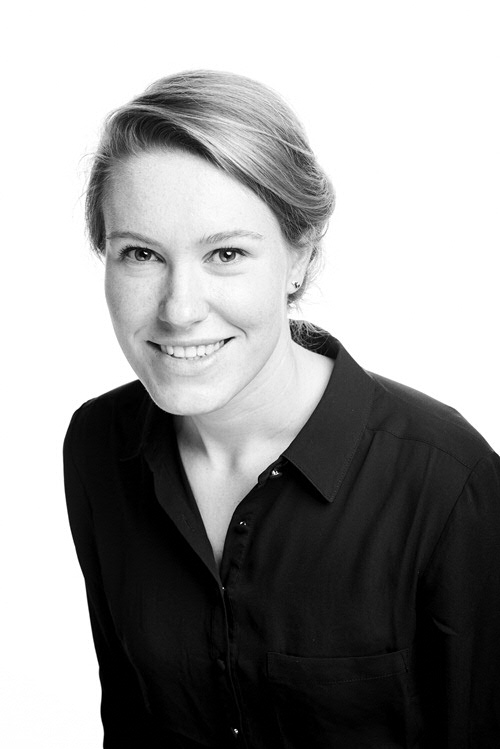Sociology
Rijksuniversiteit Groningen

Deze opleiding
| locatieGroningen |
| diplomaMSc |
| typeregulier, 60 EC |
| start1 september |
| taalvolledig Dutch |
| opleidingsduur12 maanden voltijd |
| accreditatiesNVAO |
| croho-code66601 |
| numerus fixusnee |
| honoursnee |
Waarom aan de University of Groningen?
Studieprogramma

| periode | |||||||||
| 1 | 2 | 3 | 4 | ||||||
Beleidsontwerp/Policy design | 5 EC | ||||||||
Onderzoeksforum/Research forum | 5 EC | ||||||||
P, M&B: Klassieke Werken | 5 EC | ||||||||
A, L&O: Arbeid en levensloop/Labour and life course keuzevak | 5 EC | ||||||||
C&V: theorieën/Theories keuzevak | 5 EC | ||||||||
G, Z&W: sociale determinanten van gezondheid/Social determinants of health keuzevak | 5 EC | ||||||||
SvdN: Theories of networks and sustainable cooperation keuzevak | 5 EC | ||||||||
Beleidsevaluatie/Policy evaluation | 5 EC | ||||||||
P, M&B: Toekomst van de Partijendemocratie | 5 EC | ||||||||
Pro-sociaal gedraag/Pro-social behaviour | 5 EC | ||||||||
A, L&O: Institutionele arrangementen voor A&L/Labour and Employment Relations keuzevak | 5 EC | ||||||||
C&V: beleid en interventies/Policy and interventions keuzevak | 5 EC | ||||||||
G, Z&W: medicalisering/Medicalization keuzevak | 5 EC | ||||||||
SvdN: Network methods for policy research keuzevak | 5 EC | ||||||||
Scriptie/thesis afstuderen | 20 EC | ||||||||
Stage/internship afstuderen | 10 EC | ||||||||
specialisaties
specialisatie Crime and Safety
Would you like to know how terrorism works and how radicalization develops? Are you interested in crime but also keen to contribute to safety? If so, this is the right specialization for you.
In this one-year specialization you study theories that help you to better understand crime and safety. You also learn how policy-makers deal with crime-related issues. Current policy measures and policy interventions are examined in critical detail. You will also focus on terrorism and radicalization, and immerse yourself in the sociological and sociopsychological processes that underpin these phenomena.
As part of this specialization you follow a research or policy placement. You conclude your degree programme with a thesis.
In order to follow this specialization you must have completed the Bachelor's course unit in Sociology of Crime and Safety.
specialisatie Sociology of Health, Care and Wellbeing
Why do young people start using drugs, and does health depend on social status? In this specialization you learn about the social factors that impact health, care and wellbeing.
In this specialization you learn about the latest developments in the healthcare sector and how you can impact health behaviour.
You study the following themes:
- Social influences on health, wellbeing and care
- Theory formation on behaviour that correlates with health and wellbeing and impacts the demand for healthcare
- Life-course aspects of health, wellbeing and care
This specialization centres on three stages of life: youth, adulthood and old age. For each stage you study how health and wellbeing relate to social influences and developments. Particular attention is paid to the elderly and medicalization.
There are no special entry requirements for this specialization, although we advise you to first follow the Bachelor's course unit in Medical Sociology or the pre-Master's programme.
specialisatie
specialisatie Sociology of the Network Society
How do social networks hold together or keep apart families and communities, or boost creativity in firms? And how do personal ties influence your health, career, or your choice of a partner?
specialisatie Sociology of Employment Relations & Life Course
In this specialization we study the growing flexibility of the labour market.
What advantages does it have to offer to citizens and companies, and how should this kind of transitional labour market be organized?
This specialization prepares you for positions in research and decision-making. The specialization consists of two course units: Labour and Life Course and Labour and Employment Relations.
In addition, you have to follow three courses in the compulsory core policy course units: Pro-social Behaviour, Policy Design and Policy Evaluation. These course units focus on various points in the policy cycle that differ with respect to both their objective and their starting point.
As part of the degree programme, you also follow a placement and conclude the programme with a thesis.
specialisatie Social Studies
.
Are you interested in society and would you like to teach? In the teacher training programme in Social Studies you deepen your knowledge of sociology and learn how to bring it across to secondary-school students.This two-year Educational Master's degree programme trains students to become grade-one teachers in Social Studies. The degree programme includes a didactic and a substantive component.
The substantive programme is a combination of course units in political science and sociology. These course units are offered at the Sociology department or at the Law Faculty. In addition you are required to write a thesis. The didactic programme trains you to become a grade one teacher. In this programme you learn to make the workings of our society transparent to secondary-school students. You also learn how to invite your students to reflect on different perspectives on society.
The first year focuses primarily on the substantive programme and on deepening your knowledge of sociology. It also includes a short placement at a secondary school. The second year centres on the didactic programme and you follow a more extensive placement in upper secondary education. To this end, one day a week is kept free of lectures, mentor meetings and group assignments.
After completing this two-year Master's degree programme you will be in possession of a university degree and a grade-one teaching qualification.
Onderwijs
| taal van onderwijs | 100% nl |
|---|---|
| avondonderwijs | n.v.t. |
| afstandsonderwijs | n.v.t. |
onderwijsvormen
group discussion, individual assignment, internship, lecture, literature study, research, research project, practicum, self study, tutorialteachers
study guidance
study load
study abroad
Toelating en kosten
startmomenten
aanmelding deadline : 1 mei 2025
wettelijk tarief : € 2601 (€1301 in het eerste jaar)
instellingstarief : € 16300
aanmelding deadline : 1 mei 2026
collegegeld nog niet bekend
toelatingseisen
vooropleiding
De stad
studievereniging
Sociëtas
Societas is the sociological study association at the University of Groningen. It has 250 members.Societas organizes various activities for all sociology students, such as lectures, excursions, a trip abroad, the introduction weekend, a lift contest, drinks and the Night of Sociology. The association also organizes a book sale for sociology students.
aan het woord: studenten en docenten

alumnus Erik Geerlink (Politiek, Maatschappij & Beleid)
I still use the skills I learned during my Master's programme on a daily basis, especially the research skills.
Before I started studying Sociology I did the Bachelor's programme 'Management, Economics and Law'. I wanted to do a Master's in another field and sociology seemed interesting, because it focused more on people and not just on numbers or economics. I had to do a pre-master, which was quite hard with a lot of statistics, but also very interesting.I wanted to work during my Master's and one day I decided to visit the Centre for Employment and Policy (CAB) in Groningen to ask for an internship. I worked for them as an intern during my Master's for two days a week...
The topic I do research on has changed, but the research methods I use are the same; interviewing people, analysing results, writing reports. The pace in this company is quite fast, clients want their answers quickly, which makes my work challenging. I really like my job, there is usually quite some distance between companies and their consumers, and we bring them closer together.I still use the skills I learned during my Master's programme on a daily basis, especially the research skills. I can recommend every student to do an internship during their studies. You will learn a lot from it, and it makes it much easier to find a job.
lees verder ...
alumnus Ralph Mennes (Criminaliteit en Veiligheid)
afgestudeerd in 2012 werkzaam als Onderzoeker bij Onderzoeksbureau IntravalI often work on multiple projects at once.
An important area of expertise is our ability to reach what is known as the hidden population. This group is usually found on the margins of society – the homeless, the addicts, the prostitutes. To find out what is going on within this group you have to go to them. For example, we interview cannabis users in coffeeshops. So I don't spend all my time at the office, and this makes my work more varied.During my Master’s degree programme I became interested in the relation between antisocial behaviour and popularity among young people...
lees verder ...
Keuzehulp

Studievergelijker
Sociologie
| € 303 gemiddelde kamerhuur |
| 3 eerstejaars |
| 66% vrouw |
| ? uur contacttijd/week |
| 100% Nederlandstalig |
Sociologie
| € 342 gemiddelde kamerhuur |
| ? eerstejaars |
| NAN% vrouw |
| ? uur contacttijd/week |
| 100% Nederlandstalig 100% Engelstalig |
Sociology
| € 342 gemiddelde kamerhuur |
| ? eerstejaars |
| NAN% vrouw |
| ? uur contacttijd/week |
| 100% Engelstalig |
Sociologie
| star Keuzegids topopleiding 2015 Elsevier Keuzegids topopleiding 2017 Keuzegids beste opleiding 2017 1e Elsevier |
| € 315 gemiddelde kamerhuur |
| ? eerstejaars |
| NAN% vrouw |
| ? uur contacttijd/week |
| 100% Nederlandstalig |
Contemporary Social Problems
| € 336 gemiddelde kamerhuur |
| 5 eerstejaars |
| 100% vrouw |
| ? uur contacttijd/week |
| 100% Engelstalig |
Sociology
| € 424 gemiddelde kamerhuur |
| 38 eerstejaars |
| 68% vrouw |
| ? uur contacttijd/week |
| 100% Engelstalig |
Na de studie

Beroepsperspectief / arbeidsmarkt
aansluitende masteropleidingen
| instelling | opleiding | instroomeisen |
|---|---|---|
| University of Groningen | Juridische Bestuurskunde | + 55 EC pre-master |
| Utrecht University | Leraar VHO godsdienst/levensbeschouwing full-time,part-time educational | + aanv. eisen |
| University of Amsterdam | Lerarenopleiding Maatschappijleer educational | geen aanvullende eisen |
| University of Amsterdam | Lerarenopleiding Maatschappijleer part-time educational | geen aanvullende eisen |
Potentiële beroepen
Contact
 Studentassistenten Voorlichting Sociologie
Studentassistenten Voorlichting SociologieStel je vragen over hoe het is om een master van Sociologie in Groningen te studeren aan student
Bezoek de website van deze opleiding.